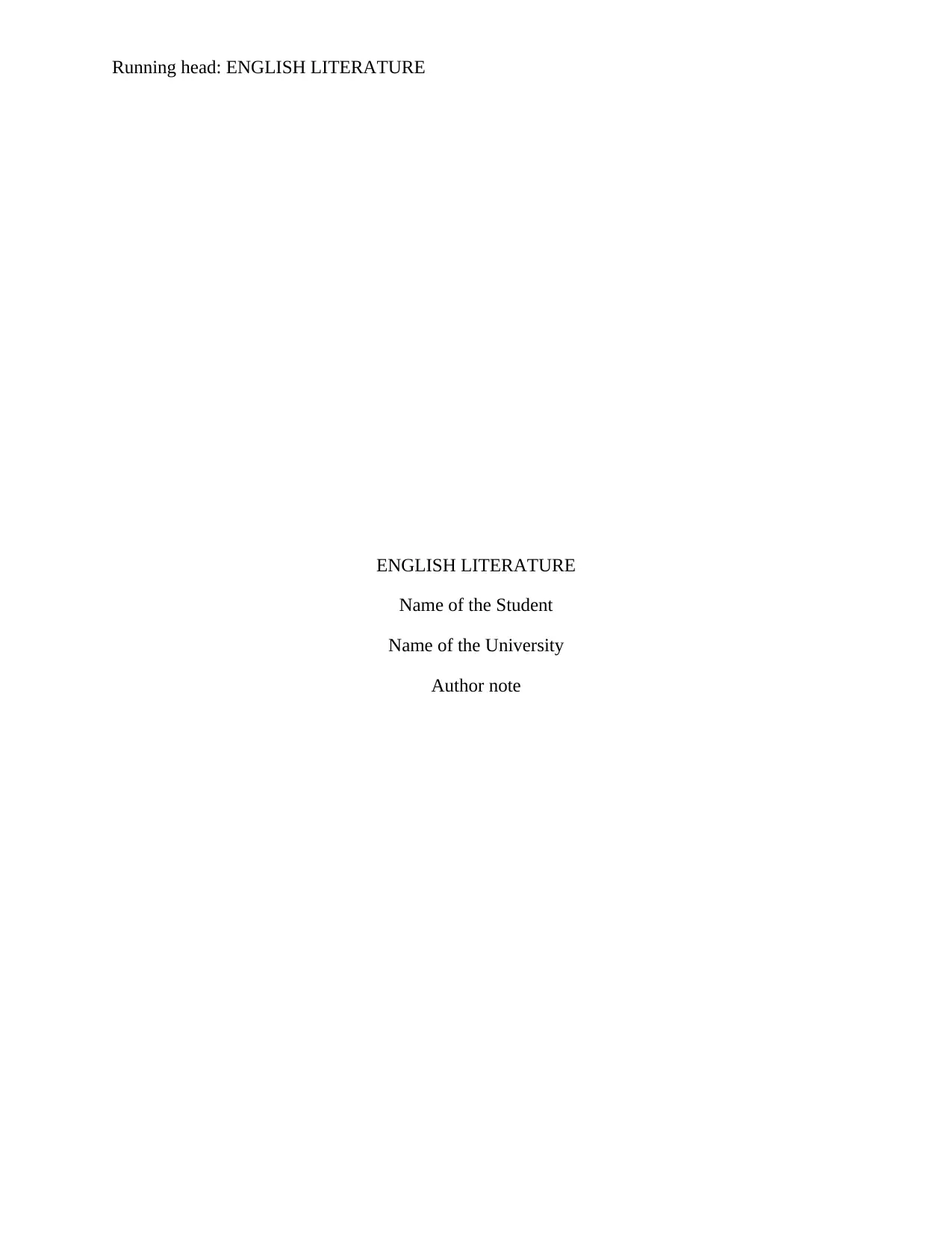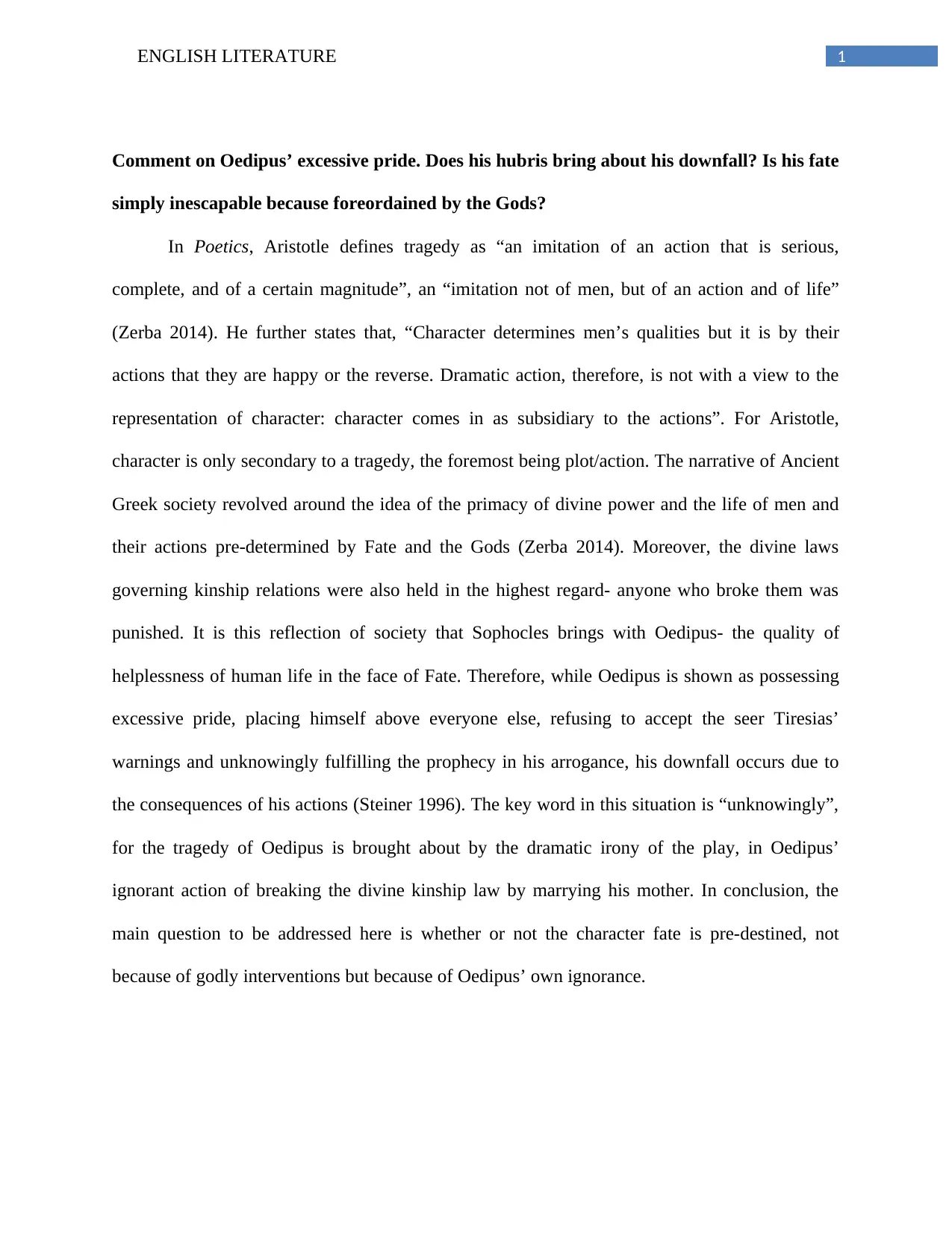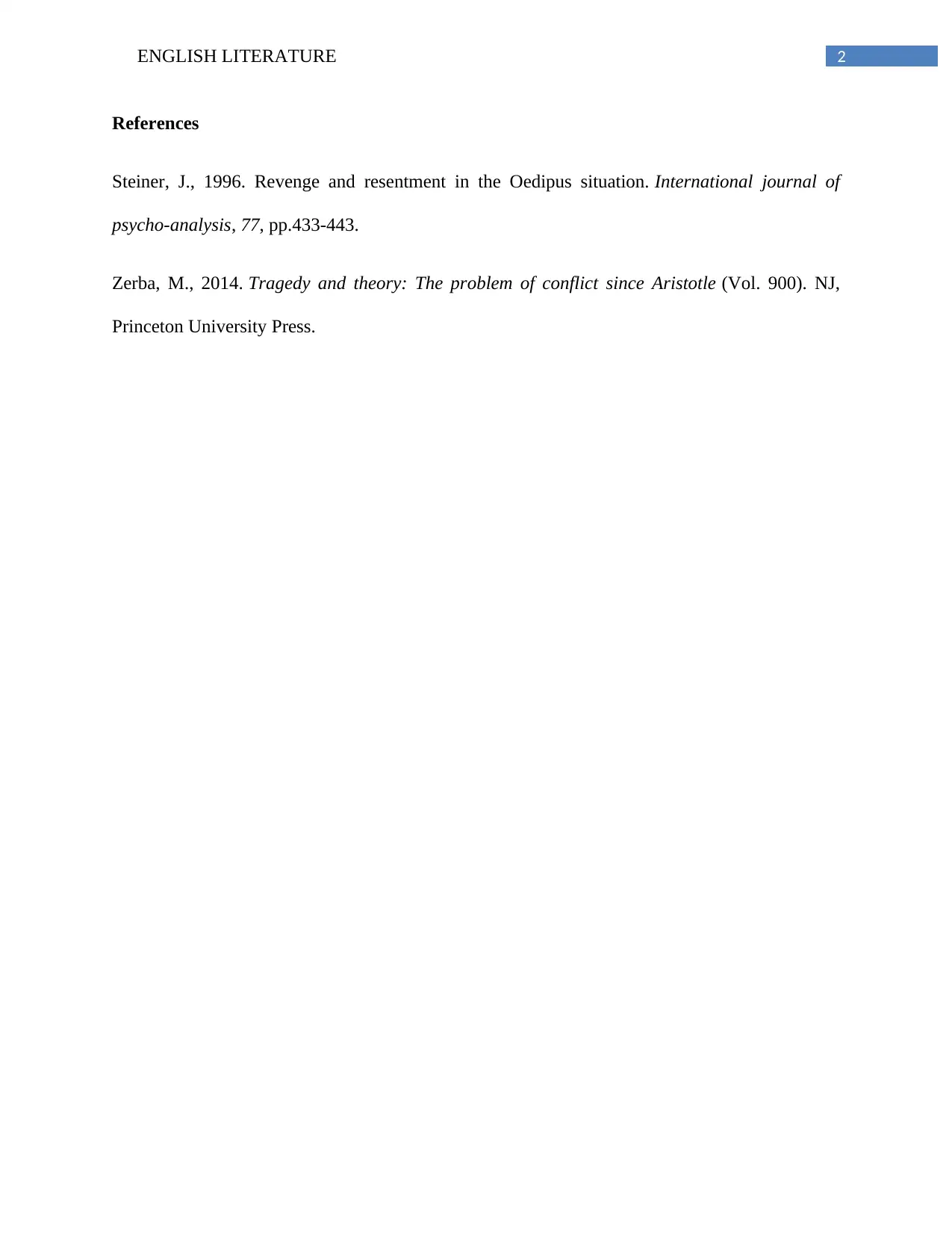Oedipus Rex: An Analysis of Pride, Fate, and Dramatic Irony
VerifiedAdded on 2022/11/18
|3
|418
|3
Essay
AI Summary
This essay analyzes the themes of pride, fate, and dramatic irony in Sophocles' Oedipus Rex. It examines how Oedipus' excessive pride and ignorance of his actions, rather than solely divine intervention, contribute to his tragic downfall. The essay references Aristotle's concept of tragedy and the importance of plot and action over character, highlighting how Oedipus' unknowingly breaking divine kinship laws leads to his suffering. The author argues that the play's tragedy stems from Oedipus' self-inflicted consequences, emphasizing the role of human actions within a pre-determined framework. The analysis uses the provided references to support its arguments and offers a comprehensive understanding of the play's central themes. The essay underscores the significance of dramatic irony in shaping Oedipus' fate, as he unknowingly fulfills the prophecy. The analysis also touches upon the societal context of ancient Greece, where the divine laws and the concept of fate played a significant role in shaping human lives.
1 out of 3




![[object Object]](/_next/static/media/star-bottom.7253800d.svg)